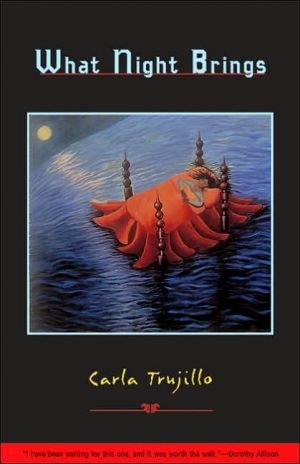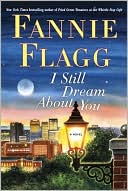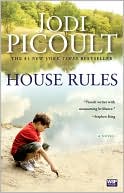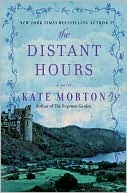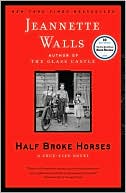What Night Brings
What Night Brings focuses on a Chicano working-class family living in California during the 1960s. Marci-smart, feisty and funny-tells the story with the wisdom of someone twice her age as she determines to defy her family and God in order to find her identity, sexuality and freedom.\ "Carla Trujillo's What Night Brings puts one more wonderful Latina novelist on the must-read list right up there beside Sandra Cisneros, Julia Alvarez and Cristina Garcia. This moving story, told in the...
Search in google:
What Night Brings focuses on a Chicano working-class family living in California during the 1960s. Marci-smart, feisty and funny-tells the story with the wisdom of someone twice her age as she determines to defy her family and God in order to find her identity, sexuality and freedom."Carla Trujillo's What Night Brings puts one more wonderful Latina novelist on the must-read list right up there beside Sandra Cisneros, Julia Alvarez and Cristina Garcia. This moving story, told in the completely convincing voice of its young protagonist, explores living with domestic abuse and longing for the maternal protection that always fails to materialize. We touch the mysteries of religion in a child's life, and are completely captivated by a young girl's budding lesbian identity. Character and situation building are exemplary, yet we are hit hard when the book takes its final turn. What Night Brings is a page-turner that lingers long after the last page has been turned."-Margaret Randall"A story that is at once heartbreaking and hilarious, beautifully told by a wise and wise-cracking young girl."-Sandra CisnerosCarla Trujillo was born to a working-class family in Las Vegas, Nevada, and grew up in northern California. She has lived in the San Francisco Bay area for the past 15 years. Her extended family and roots are New Mexican (Chicana). She works as an administrator in diversity -education and advocacy at the University of California, Berkeley. She is the editor of the anthology, Chicana Lesbians: The Girls Our Mothers Warned Us About, which won a Lambda Book Award and the Out/Write Vanguard Award in 1992 and is now in its thirdprinting. Her critical study, Living Chicana Theory, is in its second printing and widely used in college classrooms. What Night Brings is her first novel; excerpts from What Night Brings have already won awards from the Astraea Lesbian Writers Fund and Writers at Work.Publishers WeeklyThis first novel by a Chicana writer who has been active as a lesbian anthologist and editor is a pleasant surprise: a lively, picaresque tale, told in the world-weary but ever-hopeful voice of 12-year-old Marci Cruz. Marci's father, Eddie, is a drinker and womanizer who often takes his belt or his fists to Marci and her sister, Corin, but whose wife, the besotted Delia, seems oblivious of his faults. Much of the tale embraces the ingenious ways in which Marci and Corin try to outwit him, or least make their mother see him for the passive-aggressive monster he is; perhaps the most delightful of these is the long saga of their attempt to photograph him, with a cheap box camera lent by a sympathetic uncle, in incriminating situations with his girlfriend. Through all this, Marci is also becoming increasingly aware that she is romantically drawn to other girls and wishes she could become a boy so as to express such feelings appropriately. The lesbian undercurrents are subtle and touching, by no means doctrinaire, and the book, which offers some hope for the girls after a climactic confrontation with Eddie, conveys admiration for their vast resilience in the face of adversity. (Apr.) Forecast: With strong blurbs from such admirers as Dorothy Allison and Sandra Cisneros, and the recent win of the Miguel Marmol Prize, this should do well with lesbian readers and admirers of Latina literature. Copyright 2003 Reed Business Information.
\ Publishers WeeklyThis first novel by a Chicana writer who has been active as a lesbian anthologist and editor is a pleasant surprise: a lively, picaresque tale, told in the world-weary but ever-hopeful voice of 12-year-old Marci Cruz. Marci's father, Eddie, is a drinker and womanizer who often takes his belt or his fists to Marci and her sister, Corin, but whose wife, the besotted Delia, seems oblivious of his faults. Much of the tale embraces the ingenious ways in which Marci and Corin try to outwit him, or least make their mother see him for the passive-aggressive monster he is; perhaps the most delightful of these is the long saga of their attempt to photograph him, with a cheap box camera lent by a sympathetic uncle, in incriminating situations with his girlfriend. Through all this, Marci is also becoming increasingly aware that she is romantically drawn to other girls and wishes she could become a boy so as to express such feelings appropriately. The lesbian undercurrents are subtle and touching, by no means doctrinaire, and the book, which offers some hope for the girls after a climactic confrontation with Eddie, conveys admiration for their vast resilience in the face of adversity. (Apr.) Forecast: With strong blurbs from such admirers as Dorothy Allison and Sandra Cisneros, and the recent win of the Miguel Marmol Prize, this should do well with lesbian readers and admirers of Latina literature. Copyright 2003 Reed Business Information.\ \ \ \ \ Library JournalEleven-year-old Marci Cruz has two requests for God: to change her into a boy and to make her dad disappear. Marci's world, a 1960s working-class Bay Area community, is a confusing one. Her mother continues to love her father despite his ongoing brutality. Her cousin returns from Vietnam physically and mentally maimed. Her teachers can't or won't answer her questions about sex-or anything else. (A well-meaning librarian, however, does offer Marci a book on Christine Jorgensen.) This novel could be a tragedy, but it isn't. The protagonist is wise, loving, feisty, funny, and completely authentic in her quest for love and self-knowledge. Trujillo is the editor of Living Chicana Theory and Chicana Lesbians: The Girls Our Mothers Warned Us About, as well as numerous short stories. This first novel, which has already been awarded the 2003 Miguel Marmol Prize, is highly recommended for all collections.-Mary Margaret Benson, Linfield Coll. Lib., McMinnville, OR Copyright 2003 Reed Business Information.\ \ \ Kirkus ReviewsFirst novel about a young Latina lesbian’s painful coming of age. A constant preoccupation of adolescents is to be someone—anyone—other than they are. Eleven-year-old Marci Cruz wants to be herself, but as a boy. And she wants her father to go away. Every night since her First Communion, Marci has made these two simple requests in her prayers, but they have so far been denied and she’s getting tired of asking. Her father, Eddie, is a brute who drinks, cheats on his wife, and beats his children. Her mother, Delia, is too broken down from years of Eddie’s abuse to fight him anymore. But Marci has the zeal of youth and doesn’t see why she has to put with this mierda. With her mother’s example before her, Marci has little use for men, and she dreams of falling in love with some girl with big chiches—like her next-door neighbor Racquel, for example. But Racquel is not only a gringa, she’s already in love with a local boy she hopes to run away with and marry. Marci has better allies in her grandmother Flora (who wants her and her sister Corin to move in with her), her teacher Sister Elizabeth (who tries to convince her to get help), and the town librarian, Miss Buck (who gives her books about Christine Jorgensen and sex-change operations). But Marci is not one to run away from a problem, especially when it would mean leaving her mother at her father’s mercy, so she works out a plan of revenge on her own, as patiently and as brutally as possible. And she manages to find a girl who likes girls, too. A standard kid-on-the-threshold-of-the-world tale, decently told and fairly engaging, but suffused with a hatred of men so palpable that it might have been written by Andrea Dworkin.\ \
